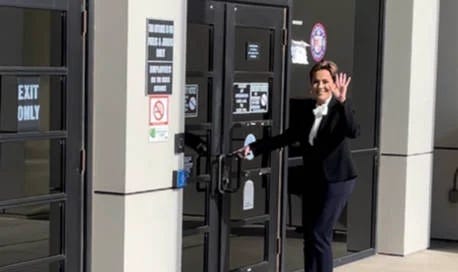Kari Lake v Katie Hobbs appeal, “trial court applied an incorrect definition of “misconduct”“, “render it uncertain”, “clouded the reliability of the results”
Kari Lake v Katie Hobbs appeal, “trial court applied an incorrect definition of “misconduct”“, “render it uncertain”, “clouded the reliability of the results”
From the Kari Lake v Katie Hobbs appeal.
“2. The trial court applied an incorrect definition of “misconduct” under §16-672(A)(1).
The trial court also erred by conflating mere “misconduct” by an election official under §16-672(A)(1) with the election official’s intent to affect an election’s outcome. Appx:684. The trial court’s standard for “misconduct” is a felony, Ariz. Rev. Stat. §16-1010, and thus certainly misconduct. But this Court has set the bar far lower for the type of misconduct that is actionable in election contests. Absent legislative intent for a “special or technical meaning,” the dictionary definition applies. State ex rel. Frohmiller v. Hendrix, 59 Ariz. 184, 189 (1942). “Misconduct” includes negligent maladministration as well as intentional acts. See, e.g., In re Alexander, 232 Ariz. 1, 13-14 (2013) (distinguishing “intentional or knowing misconduct [from] negligent misconduct”). In the election context, statuary requirements are not merely advisory if the violation of a statutory protection “affect[s] the result, or at least render it uncertain.” Findley, 35 Ariz. at 269. Indeed, this Court subsequently narrowed Findley:”
“The question is whether the provisions advance constitutional goals “by setting forth procedural safeguards to prevent undue influence, fraud, ballot tampering, and voter intimidation.” Id. As in Miller, Maricopa violated the types of election laws intended “to secure the purity of elections and guard against abuses of the elective franchise.” Ariz. Const. art. VII, §12. The violations are therefore material in context: “we will not set aside an election unless the effect of the noncompliance altered the outcome or clouded the reliability of the results.”
“Plaintiff does not allege “mere technical violations.” She alleges “substantive irregularities” and systematic violations of procedural safeguards for fair and legal elections where the “tactics … turned the election around.” Miller, 179 Ariz. at 180.”



